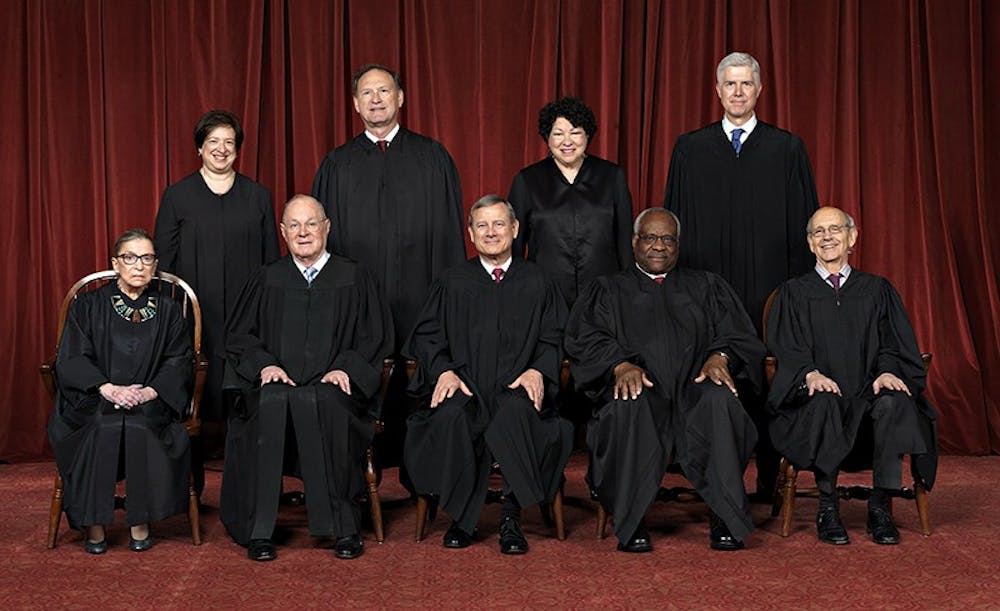The cases being considered in the U.S. Supreme Court this term are set to have major ramifications for political representation, constitutional rights and anti-discrimination laws across the country.
The court’s calendar, which began in October, is packed with high-profile cases — addressing a range of issues from the constitutionality of political gerrymandering to Fourth Amendment rights.
Gill v. Whitford
The court’s decision on Wisconsin's political gerrymandering could open the door for legal challenges to maps in states like North Carolina.
The plaintiffs in the case allege the map adopted by the state's Republican-majority legislature in 2011 violates their First Amendment freedom of association and the Equal Protection Clause. The state argued the Republican Party had a natural advantage because their voter base was spread out, while Democrats were clustered in cities.
In November 2016, a three-judge federal panel sided with the plaintiffs, arguing the political geography was not enough to explain the “disparate effect” seen in the election results. Despite Democrats securing a majority of the votes for Wisconsin's state assembly in 2012, Republicans won 60 of 99 seats.
While the Supreme Court ruled North Carolina's 2011 redistricting plan was illegally drawn based on race, the panel’s decision in the Wisconsin case marked the first time in more than three decades that a court has ruled against a partisan redistricting plan.
Chris Brook, legal director of the North Carolina ACLU, said if the Supreme Court strikes down Wisconsin’s map, it could raise questions about the constitutionality of North Carolina’s map, which was redrawn by state legislators and submitted to federal judges in late August.
If North Carolina’s maps are approved by the judges, around two-thirds of the districts in the state House and Senate will lean Republican. President Donald Trump and former Republican Gov. Pat McCrory received less than half the state's popular vote in the 2016 election.



